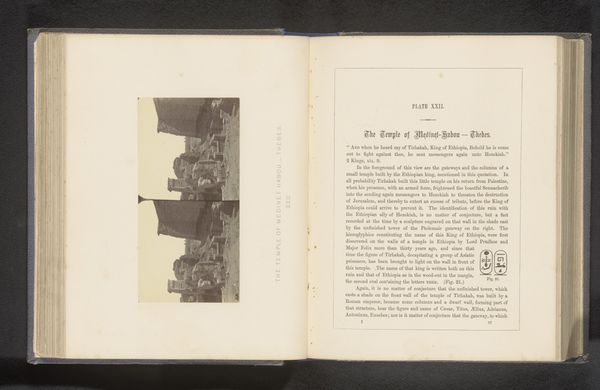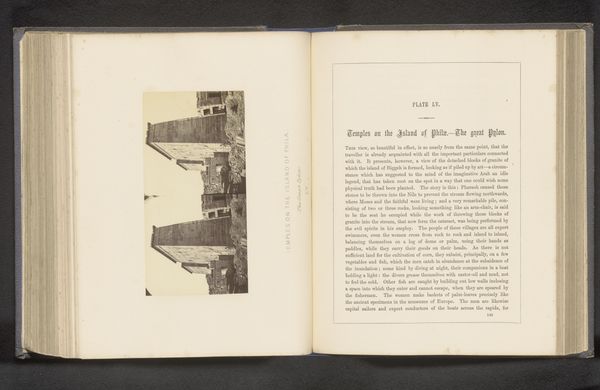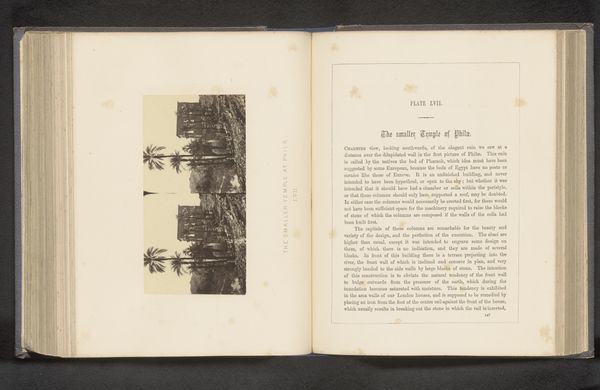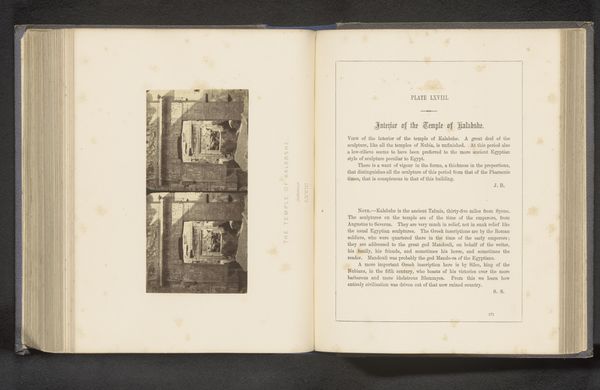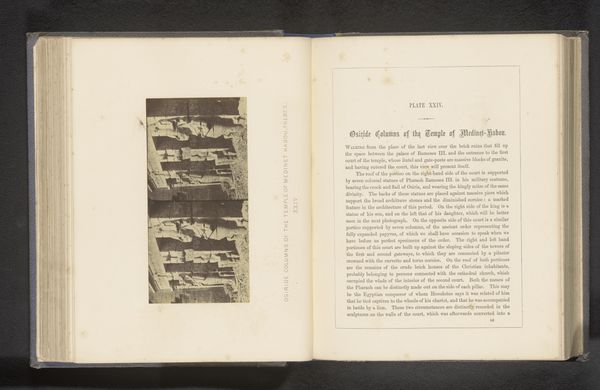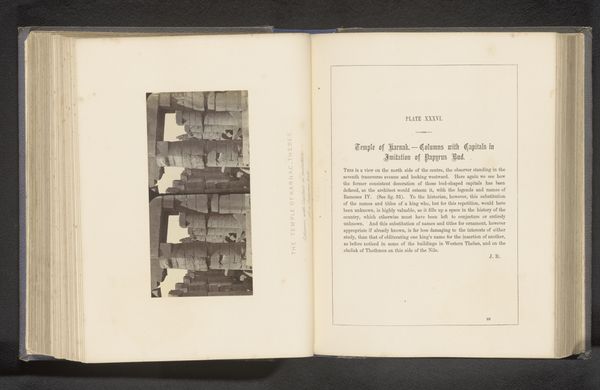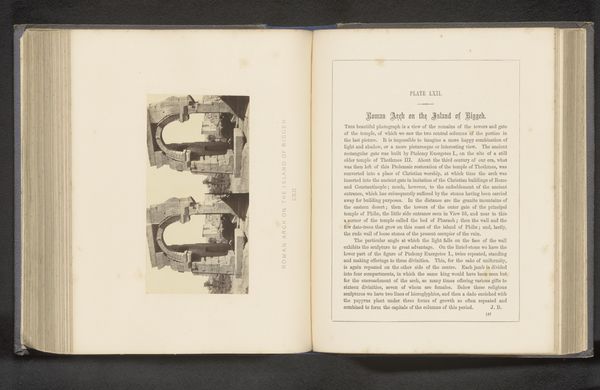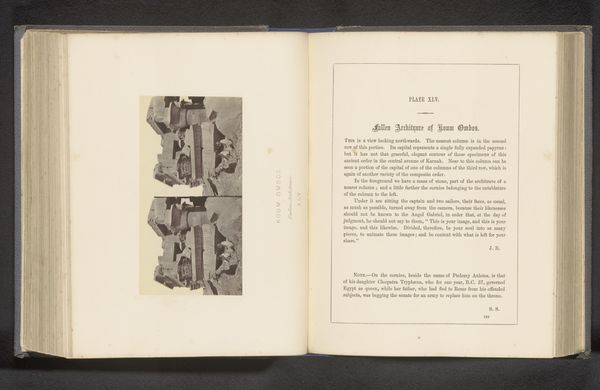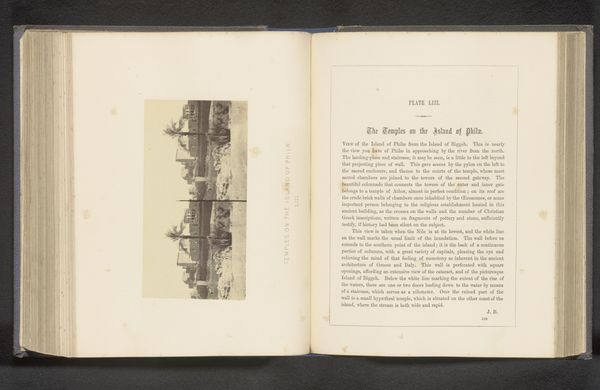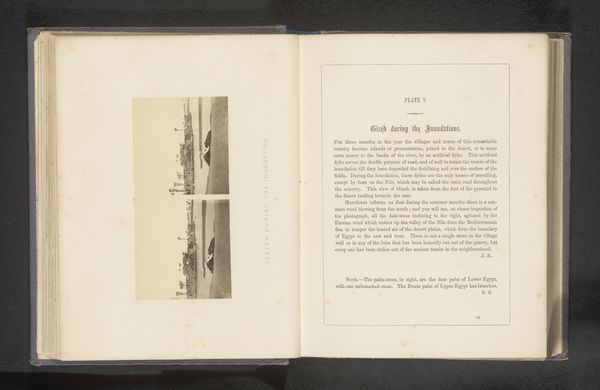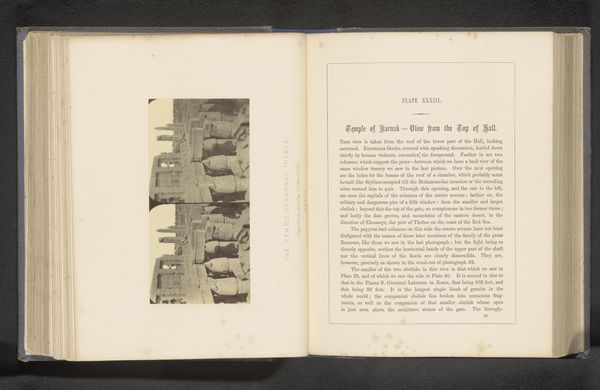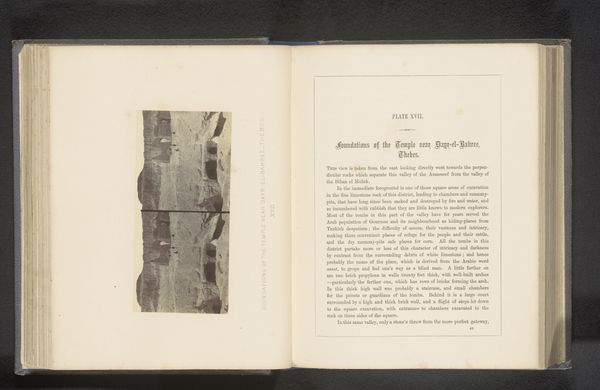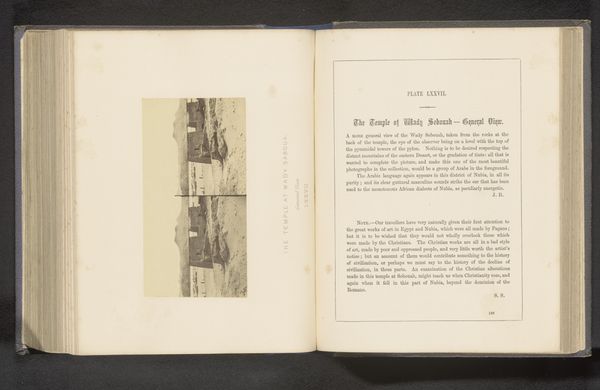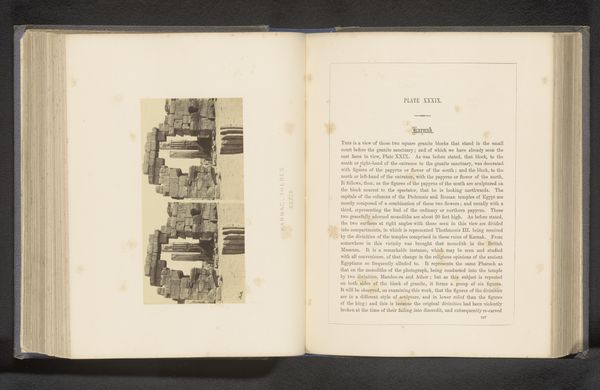
print, photography, gelatin-silver-print
# print
#
landscape
#
ancient-egyptian-art
#
photography
#
ancient-mediterranean
#
gelatin-silver-print
Dimensions: height 72 mm, width 139 mm
Copyright: Rijks Museum: Open Domain
This photograph of a temple near Deir el-Medina was captured by Francis Frith sometime before 1898, using the collodion process. Notice how the image’s tonal range is affected by this process, which involved coating a glass plate with light-sensitive chemicals. The result is a sharp, detailed image, yet also somewhat fragile, as the negative had to be developed quickly before the emulsion dried. This sensitivity of the wet collodion influenced the final quality of the photograph, because it gave the photographer very little room to manoeuvre, turning the act of image making into a fast and immediate craft. More broadly, Frith’s image can be appreciated as a product of its time, reflecting the 19th-century fascination with capturing distant lands for mass consumption. Photography provided a means of translating the world into reproducible images, aligning with the era’s colonial ambitions and the burgeoning market for exotic views. In this way, Frith’s photograph exemplifies how technological advancements and artistic vision intertwine with social and economic forces.
Comments
No comments
Be the first to comment and join the conversation on the ultimate creative platform.
